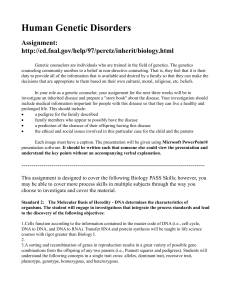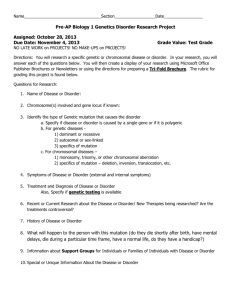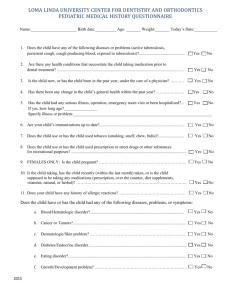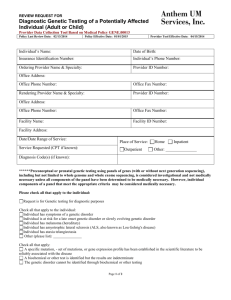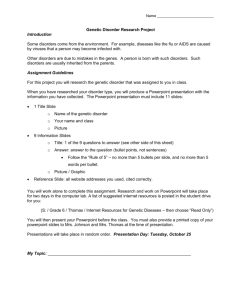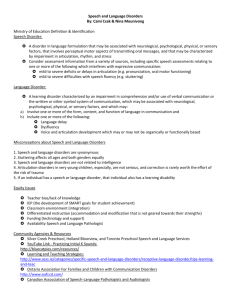File - Science with Mrs. Peppers
advertisement
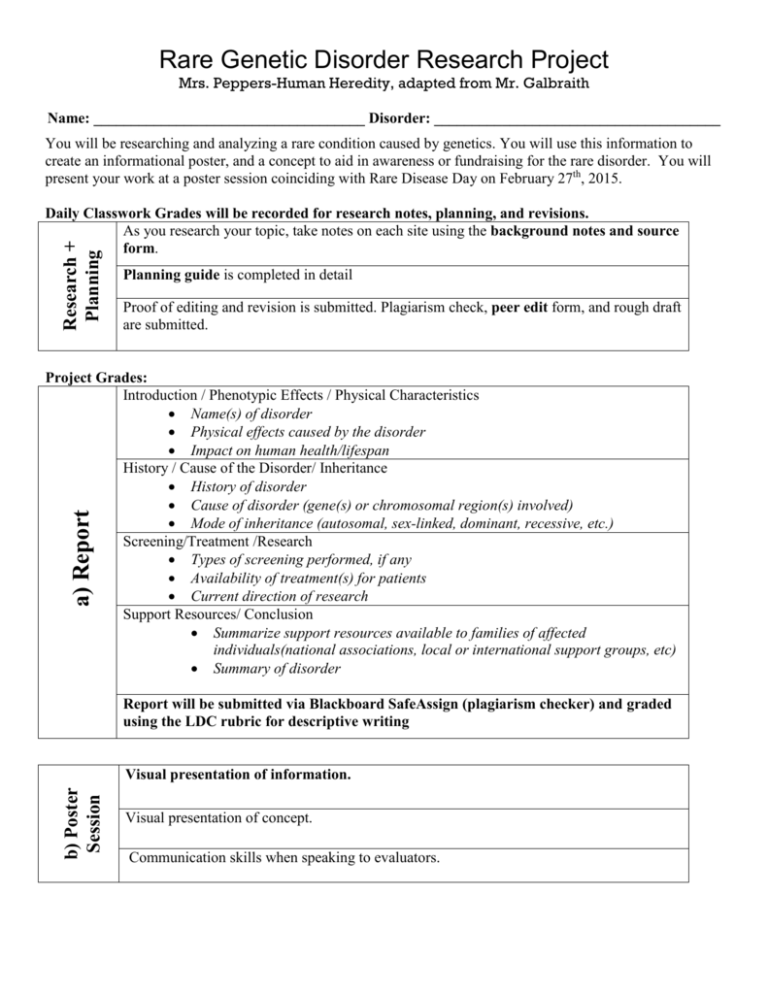
Rare Genetic Disorder Research Project Mrs. Peppers-Human Heredity, adapted from Mr. Galbraith Name: ____________________________________ Disorder: ______________________________________ You will be researching and analyzing a rare condition caused by genetics. You will use this information to create an informational poster, and a concept to aid in awareness or fundraising for the rare disorder. You will present your work at a poster session coinciding with Rare Disease Day on February 27th, 2015. Research + Planning Daily Classwork Grades will be recorded for research notes, planning, and revisions. As you research your topic, take notes on each site using the background notes and source form. Planning guide is completed in detail Proof of editing and revision is submitted. Plagiarism check, peer edit form, and rough draft are submitted. a) Report Project Grades: Introduction / Phenotypic Effects / Physical Characteristics Name(s) of disorder Physical effects caused by the disorder Impact on human health/lifespan History / Cause of the Disorder/ Inheritance History of disorder Cause of disorder (gene(s) or chromosomal region(s) involved) Mode of inheritance (autosomal, sex-linked, dominant, recessive, etc.) Screening/Treatment /Research Types of screening performed, if any Availability of treatment(s) for patients Current direction of research Support Resources/ Conclusion Summarize support resources available to families of affected individuals(national associations, local or international support groups, etc) Summary of disorder Report will be submitted via Blackboard SafeAssign (plagiarism checker) and graded using the LDC rubric for descriptive writing b) Poster Session Visual presentation of information. Visual presentation of concept. Communication skills when speaking to evaluators. Possible Disorders to Research: Supporting Resources: Office of Rare Disease Research: http://rarediseases.info.nih.gov/gard/diseases-bycategory/37/newborn-screening List of genetic and rare diseases with newborn screening available (states vary). A Genetics Glossary http://www.genome.gov/glossary/ A talking genetics glossary, from National Human Genome Research Institute Understanding Gene Testing http://www.cancer.gov/cancertopics/factsheet/Risk/genetic-testing US National Library of Medicine, Genetics Home Reference site http://ghr.nlm.nih.gov/BrowseConditions A comprehensive list of genetic conditions with links to supporting resources. Genetic & Rare Conditions Site http://www.kumc.edu/gec/support/ links to different types of disorders in alphabetical order Genetic Disorder Library http://learn.genetics.utah.edu/content/disorders/ To learn more about different genetic disorders, browse through the Genetic Disorder Library. This site discusses genetic testing for types of cancer. Genetics Education Center http://www.kumc.edu/gec/ Seeks to help educate people about genetics. STAR-G Screening, Technology And Research in Genetics (STAR-G) Project http://www.newbornscreening.info/Parents/facts.html Fact sheets on disorders with newborn screening. National Organization for Rare Disorders https://www.rarediseases.org/ Non-profit focused on education, advocacy, and outreach. Baby’s First Test http://www.babysfirsttest.org/ Newborn screening informational clearing house. Rare Disease Day http://www.rarediseaseday.org/ Poster prompt: What causes a specific genetic disorder? What effect on human health does the disorder have, and how is it inherited? After researching genetics websites on your selected genetic disorder, design a scientific poster in which you describe the phenotype, genetic basis, form of inheritance, and resources available for families of individuals with the genetic disorder. Support your discussion with evidence from your research. Concept prompt: How could you increase awareness or raise funds for research supporting your selected genetic disorder? Develop a logo, assistive device, fundraising campaign, or develop your own idea (with teacher approval) based on your understanding of the genetic disorder. Explain the rationale supporting your concept.
